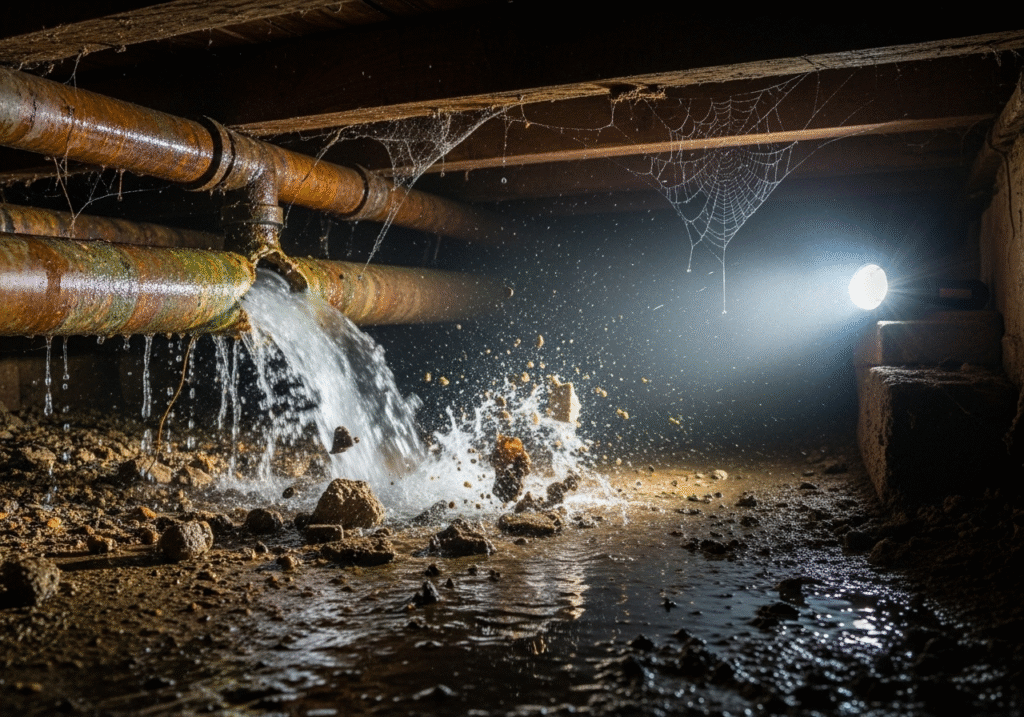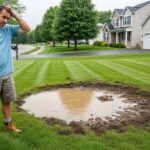The Top 5 Causes of Burst Pipes in North Carolina Homes
South End Plumbing Heating & Air Expert Tips

The Top 5 Causes of Burst Pipes in North Carolina Homes
Few plumbing emergencies are as stressful—or damaging—as a burst pipe. In just minutes, a ruptured pipe can flood your home, ruin flooring and drywall, and cost thousands in repairs. While burst pipes are often associated with freezing winters up north, homeowners in North Carolina aren’t immune. In fact, our unique climate, older homes, and growing infrastructure all create conditions where pipes are at risk. Here are the top 5 causes of burst pipes in North Carolina homes and what you can do to prevent them.
1. Freezing Temperatures
Even though North Carolina winters are milder than those up north, sudden cold snaps are common. When water inside pipes freezes, it expands—putting immense pressure on the pipe walls. This often causes weak points to rupture, especially in:
- Uninsulated crawl spaces
- Exterior walls
- Outdoor spigots and hose bibs
Prevention Tip: Insulate exposed pipes and disconnect outdoor hoses before winter. On especially cold nights, let faucets drip to keep water moving.
2. High Water Pressure
Excessive water pressure puts constant stress on your plumbing system. Over time, this pressure can weaken pipe joints and seals, eventually leading to a burst.
- Normal home water pressure: 40–60 PSI
- High-risk level: 80 PSI or more
Prevention Tip: Have a plumber install a pressure-reducing valve (PRV) to keep your home’s water pressure within safe limits.
3. Corrosion and Aging Pipes
Many older North Carolina homes still have galvanized steel or copper plumbing that corrodes over time. As pipes thin out, they become brittle and prone to bursting under pressure. Even small pinhole leaks are often early warning signs.
Prevention Tip: Schedule a plumbing inspection if your home is more than 30 years old. Replacing outdated pipes with PEX or PVC can prevent costly disasters.
4. Shifting Soil and Tree Roots
The Carolinas are no strangers to shifting soil, especially after heavy rains. Underground pipes can crack or separate due to soil movement. Tree roots searching for water can also invade and damage pipes, leading to blockages and bursts.
Prevention Tip: Avoid planting large trees near your sewer or water lines, and have your underground pipes inspected if you notice frequent clogs or reduced water pressure.
5. Poor Installation or DIY Repairs
Improperly installed pipes or amateur repairs can set the stage for failure. Weak joints, mismatched materials, or lack of proper support can all lead to bursts down the road.
Prevention Tip: Always hire a licensed plumber for pipe installation and major plumbing repairs to ensure work meets North Carolina code requirements.
The Cost of a Burst Pipe
The damage from a burst pipe can be severe:
- Flooded floors and ruined drywall
- Mold growth within 24–48 hours
- Structural damage to framing and foundations
- Expensive restoration bills that often exceed $5,000–$10,000
Taking preventive steps is far less costly than dealing with the aftermath.
Conclusion
Burst pipes can strike unexpectedly, but they’re often preventable with the right precautions. Freezing temperatures, high water pressure, corrosion, soil shifts, and poor installations are the leading causes in North Carolina homes.
Don’t wait for a plumbing emergency to strike. Contact South End Plumbing Heating & Air at (704) 741-8714 for professional leak detection, pipe inspections, and burst pipe repair in Charlotte, NC. Our family-owned team is here to protect your home from costly water damage.



